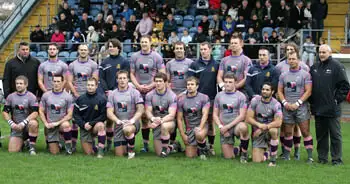Time for Cumbria to make Super League dream possible

The first steps towards a Super League club in Cumbria may well have been taken with the news that a major review of the game in the county will be spearheaded by Whitehaven, Workington Town and the RFL.
It is almost 20 years since Cumbria was last represented in the top flight, with Workington taking part in the inaugural season of Super League in 1996, finishing bottom of the table and being relegated.
Despite that, Cumbria has continued to produce players of high quality, and their amateur clubs are consistently amongst the best in the game.
Whitehaven, under the guidance of Steve McCormack, flirted briefly with Super League almost 10 years ago, losing consecutive National League 1 Grand Finals to Leigh and Castleford, the latter after finishing top of the pile in the second tier.
It was the return to the county of McCormack, as Scotland coach, which has prompted the review. McCormack’s Scotland were one of the stories of the recent World Cup, reaching the quarter-finals, and more than 14,000 turned out to watch them play two group games at Workington’s Derwent Park; a thrilling draw with Italy, and a win over Tonga.
For years, many pro-Cumbria fans have criticised the RFL for giving attention to the likes of London, Wales and France as expansion posts for Super League, and ignoring a traditional rugby league hotbed that already sits outside of the M62 corridor.
The problem has been the lack of a platform for the RFL to support.
Both Whitehaven and Workington will probably admit that neither club in its current form is likely to be feasible or sustainable in the top flight, and in fact, both probably face a bit of a struggle to ensure they are included in the top 24 clubs in next season’s re-structure.
They were of course subject of merger talk pre-Super League, but it’s clear that even now, any merger is unlikely to be warmly received.
The review will attempt to find a solution to this problem.
To me, there can only be one solution. A new club, playing out of a new stadium, representing the whole of West Cumbria. Both Whitehaven and Workington clubs would remain as separate entities, feeding players in to what would essentially be a Super League “franchise”, playing games on different days, enabling the die-hards to potentially attend two games per week – the new Cumbrian team and either Whitehaven/Workington.
The fanbase is there, the player pool is there, it now all needs feeding in to a commercially viable club in a project which, if it were to be done right, is the sort of success story that the RFL craves.
But with the re-structure of the game, how a new “franchise” might be inducted becomes hazy. If Whitehaven and Workington make the top 24, which is surely their aim, you are then faced with the possibility that a new Cumbrian team could end up playing against the two old clubs, which surely defeats the object of installing Cumbrian presence in to the top flight in the first place.
On the flip side, you could argue that it should be up to Whitehaven or Workington individually to get themselves in shape for Super League on their own, much like the likes of Featherstone, Sheffield and Leigh would have to do.
The good news is that the review will shape what the future holds.
There is no “pro-merger” agenda being driven by anyone involved in the project, and it’s hoped that by the end of the summer, the clubs and the RFL will have agreed on the next stage looking at their own interests and the wider interests of the sport in west Cumbria.
There is already a Cumbrian Regional Academy that is producing players, and potential for further development and growth, while Cumbria also fielded an independent 9s side a couple of years ago.
With the money wasted by clubs flying back and to Toulouse between 2009 and 2011 in the Championship, what could have been done in that time to help develop the game in Cumbria?
Perhaps instead of focusing on artificial expansion, it’s now time the RFL looked at investing in areas that are already ripe for rugby league growth that have now been neglected for far too long.